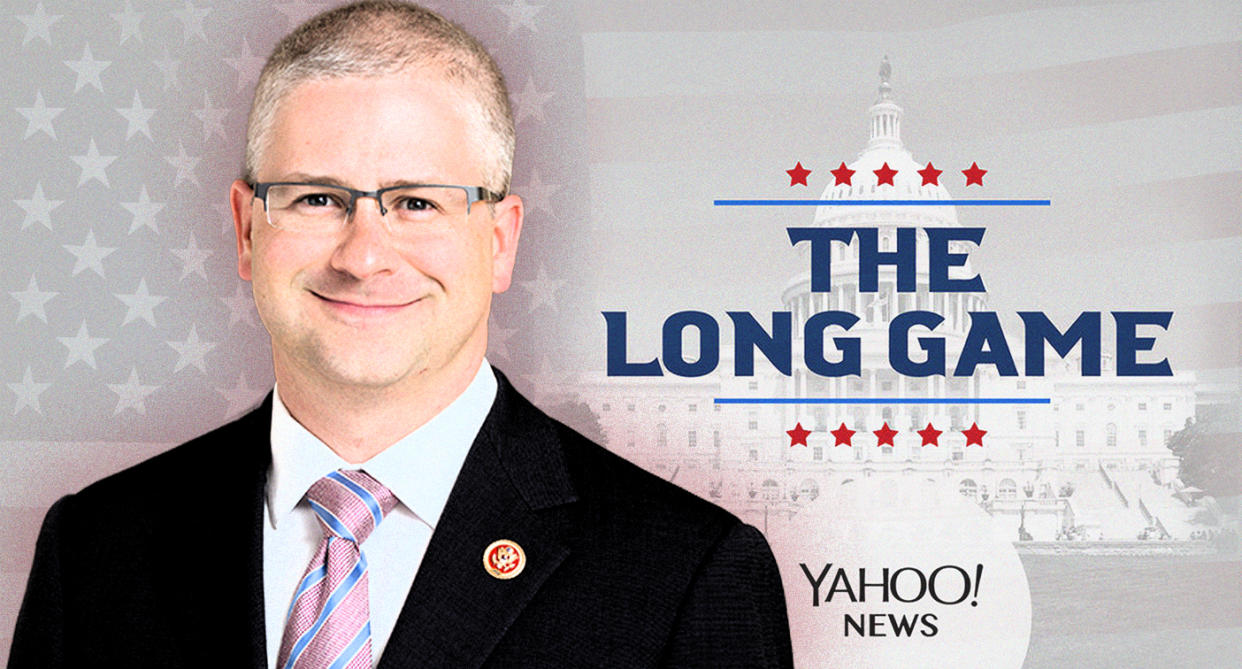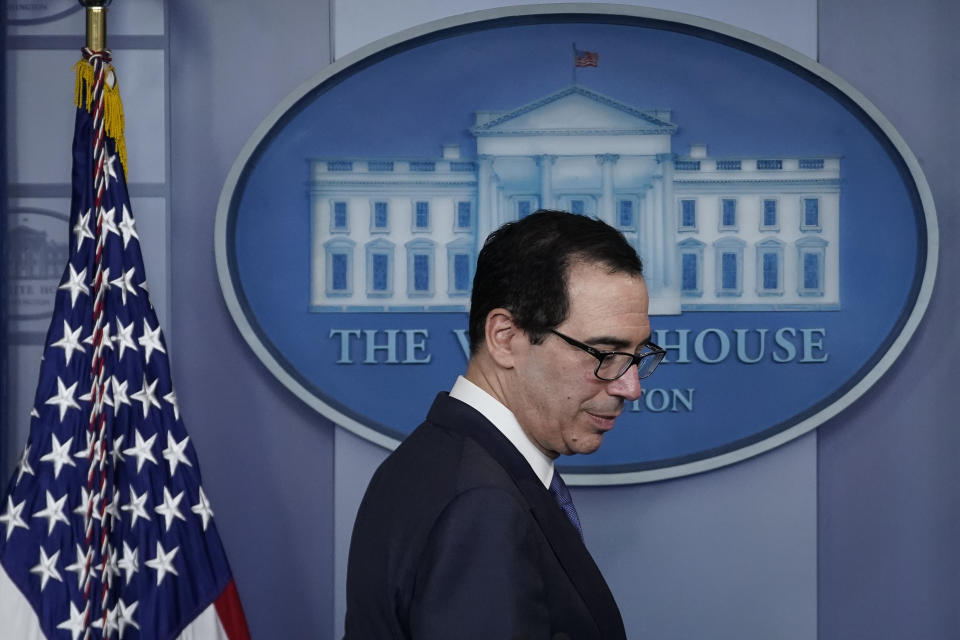Republican congressman backs Elizabeth Warren's small-business bailout proposal

WASHINGTON — A top Republican congressman says he agrees with Sen. Elizabeth Warren’s proposal to remove the cap on how much money the government can lend to small businesses affected by the coronavirus pandemic.
“I think that’s probably reasonable,” Rep. Patrick McHenry, who represents banking-heavy North Carolina and is the ranking Republican member on the House Financial Services Committee, said of Warren’s proposal.
The Paycheck Protection Program (PPP) was funded to the tune of $350 billion in the most recent coronavirus relief package, and the Senate is moving on Thursday to add another $250 billion to it. The program is designed to give small businesses the money they need to stay afloat and keep employing workers during the pandemic.
McHenry said the PPP should have been at $1 trillion from the get-go, and said he agrees with Warren, a Democrat, who said Wednesday that “small business owners are panicked that there isn’t enough money to go around.”
“Raising the cap is a start — but it won’t be enough,” Warren tweeted. “Every small business that qualifies should get the help they need, period. We should provide an absolute guarantee.”
McHenry, in an interview on “The Long Game,” a Yahoo News podcast, said, “This would be one of the rare acts of agreement I would have with Elizabeth Warren.
“Given the nature of this program, and the need for it, if it doesn’t get used, it doesn’t get used. People will run out of eligibility, and there are only so many small businesses in America, roughly about 30 million small businesses,” McHenry said. “So something like this, that’s fine. Let’s make sure the funds are available so small businesses can stay in existence.”
The PPP can lend up to $10 million to businesses with 500 employees or fewer, with funds backstopped by the U.S. government, and the business does not have to repay the loan if it uses at least 75 percent of the money to retain employees. A bipartisan group of senators, led by Marco Rubio, R-Fla., and Ben Cardin, D-Md., crafted the legislation.
McHenry said he has worked closely with officials at the Treasury Department to help fine-tune the PPP, which was rolled out last Friday. The program has been beset by challenges in its first week, with many small-business owners complaining that they cannot access it. Banks have blamed the Small Business Administration (SBA) for waiting until the last minute to issue guidance on how the program would work.

And on Wednesday, the Washington Post published comments by a senior official at the SBA that blamed the big banks for moving too slowly to get money out the door to desperate business owners. “Some of the big banks ... that had no problem taking billions of dollars of free money as bailout in 2008 are now the biggest banks that are resistant to helping small businesses,” said Joseph Amato, an SBA Nevada district director.
McHenry acknowledged that the delivery of loans through the PPP has been “uneven” but said the program was requiring “a massive amount of loans that is beyond SBA’s traditional capacity, so SBA has done well, considering.” The SBA made $25 billion worth of loans in all of 2019, he said. And in the first four days of the PPP, it pushed out twice that amount, $50 billion.
“Did you have an administrator say something dumb? Yes,” McHenry said, referring to Amato. “They’re trying to pass blame. My small businesses don’t care about the blame. They want it to work.
“There is a challenge here with banks. Some banks are very good with utilizing the program here. Others are not,” McHenry said. “You have small banks that are doing very well and other small banks that have a very difficult time accessing the program. Same for the big banks. So it’s very uneven at this point. It will get better in the next week.
“It’s the speed by which we had this intervention that has made it very, very challenging to deliver. But I think it is mostly delivering. And it deserves at this point a B-plus,” he said.
One of the biggest complaints made by small-business owners is that banks have refused to work with them to access the program if they do not have business checking accounts or credit cards, or in some cases both, already with that bank.
McHenry said that applicants should start the application process by working through the bank they use for their business accounts, because “they know you” and “this is important to ensure that businesses are actually what they say they are.”
If that does not work, he said, applicants should go to a bank they may have a nonbusiness account with, and if that doesn’t work, they should create accounts at a bank they want to use to apply.
“It is challenging because there is this rush, this great need,” he said.
_____
Click here for the latest coronavirus news and updates. According to experts, people over 60 and those who are immunocompromised continue to be the most at risk. If you have questions, please refer to the CDC’s and WHO’s resource guides.
Read more:




